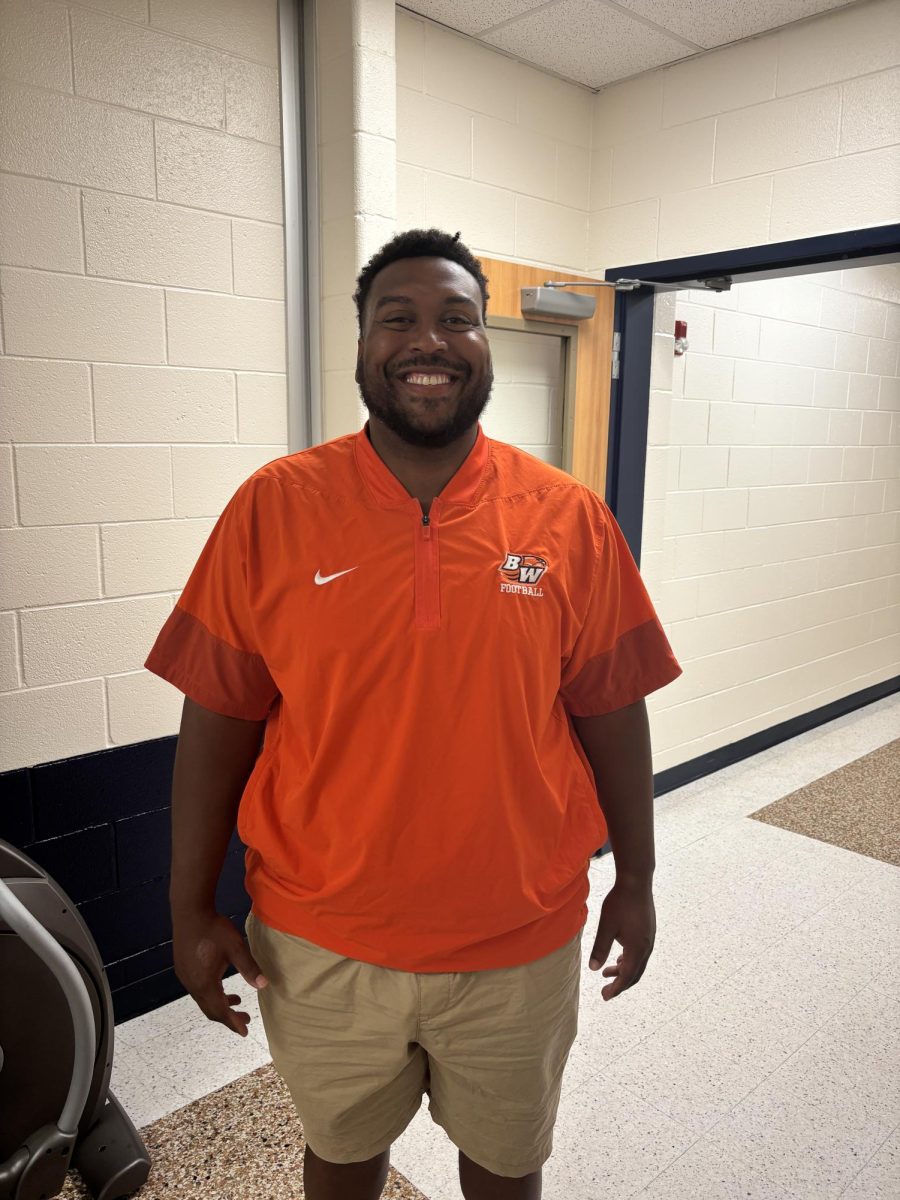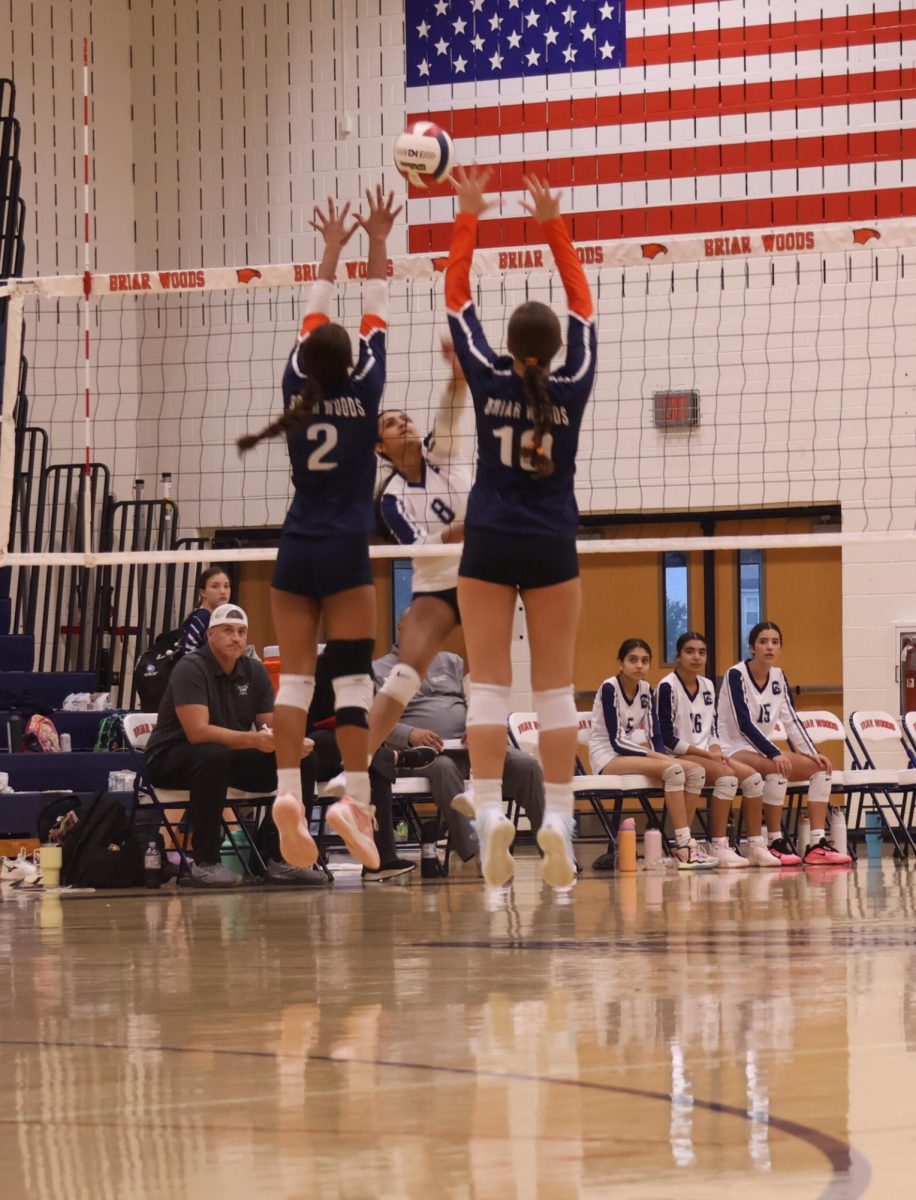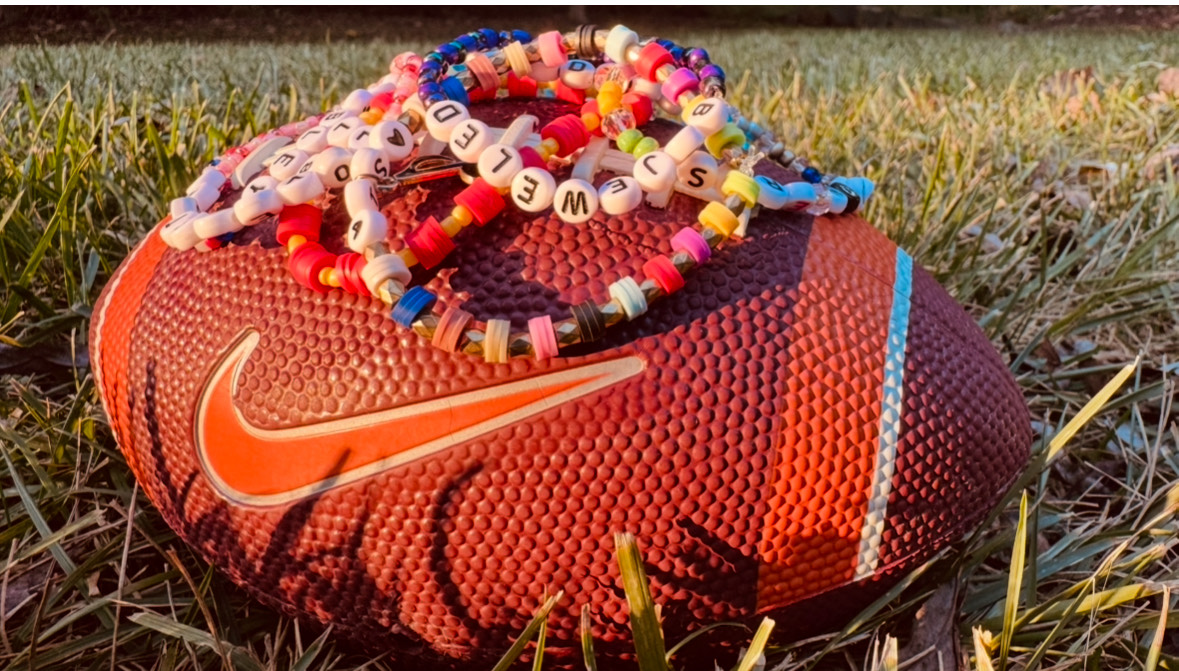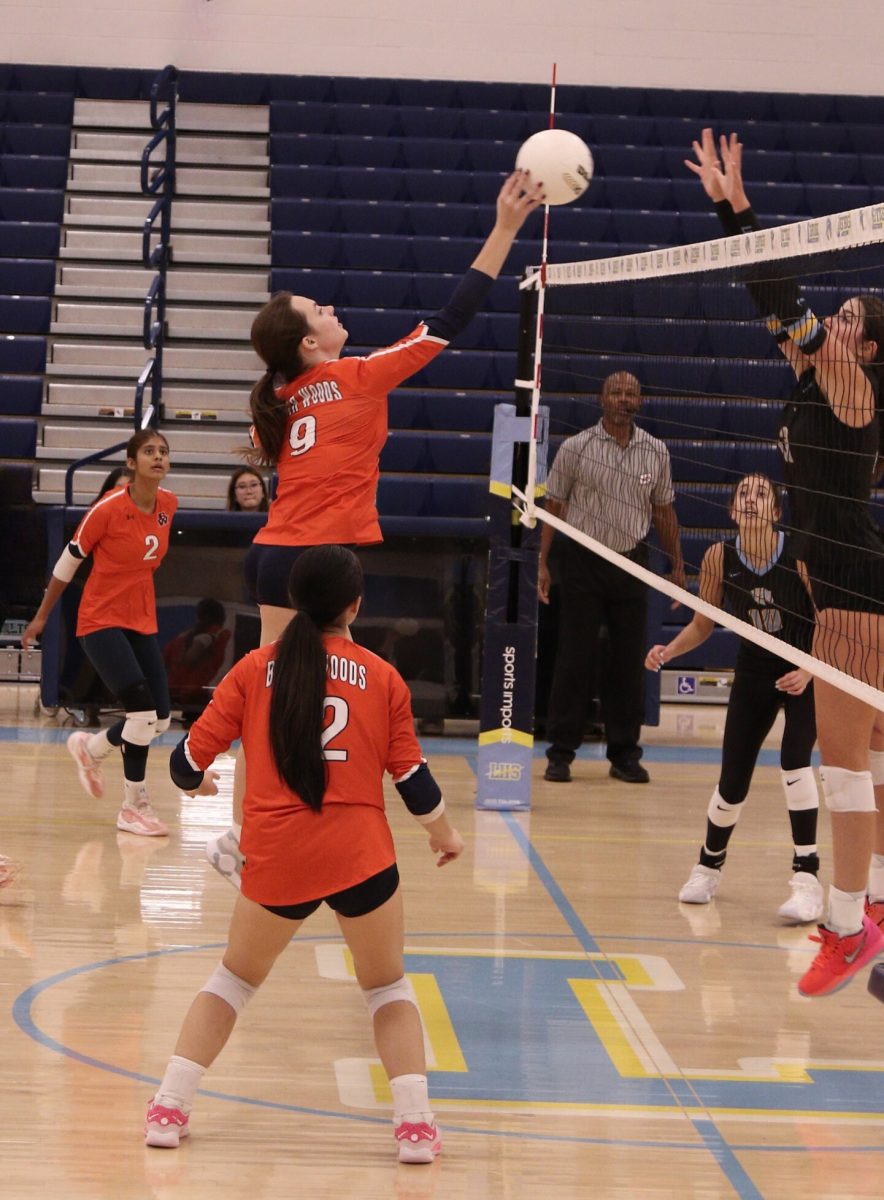“Lamar Jackson is yet to play. I need 20 more points this week. Jayden Daniels is out this week.” Statements like these have been the epitome of conversation for the past few weeks as more than 60 million people in the U.S. get ready to play ESPN Fantasy Football. Participants spend hours tracking stats, adjusting lineups, and debating which players to choose. Now, ESPN Fantasy Football has even transformed from a game reserved for friendly rivalries to one utilized in classrooms across the country.
ESPN Fantasy Football is a game used to sharpen critical thinking, strategic planning, and teamwork skills at Briar Woods High School. ESPN Fantasy football is an online competition where players act as team managers, drafting real NFL athletes to form virtual teams. Each week, managers earn points based on their players’ real-life performances as they compete against others in their league.
In Jason Uhry’s sports marketing class at Briar Woods High School, students huddle around their phones; not to scroll through TikTok, but to check whether Lamar Jackson or Jayden Daniels is winning them points. Briar Woods Sports Marketing teacher Jason Uhry, finds that students have a lot they can learn from ESPN Fantasy Football.
“It didn’t come so easy to figure out who to select for their team,” explained Uhry when asked about what students are learning from playing. “Students had to research and problem solve,” he continued.
The game has evolved from a fun diversion to an educational tool. Students who once saw ESPN Fantasy Football as just entertainment or a nuisance to play soon recognized its academic applications. Assignments now mirror the weekly lineup choices: players analyze stats, predict outcomes, and adjust strategies when injuries or underperformances derail plans. Anjali Ayyagari, a Briar Woods sophomore taking sports marketing, found herself surprised by her ability to connect her fantasy roster to activities outside of the classroom.
“The other day we had to choose quarterbacks and the decision felt so much greater than I thought it would,” shared Ayyagari. “It was very similar to making bigger choices in life too,” continued Ayyagari.
Similarly, Uhry noticed newfound excitement in students who were once reluctant to immerse themselves into the game. “Anyone playing has to adjust and adapt,” shared Uhry as he talks about the impact of fantasy football on individuals.
High school students playing outside of a classroom setting realized that ESPN Fantasy Football has given them more insight than they initially thought. In the beginning, many students approached the game as nothing more than entertainment. Soon, they started to realize that it had much more to offer. Briar Woods High School Senior Sid Vemula, formerly a football player himself, recognized the knowledge he has gained from playing ESPN Fantasy Football.
“I didn’t really catch it at first, but Fantasy has definitely helped with like critical thinking and like constantly checking up on things in the game,” shared Vemula. “If you’re not up to date with everything, it could cost you to lose, kind of like assignments in school,” he continued.
ESPN Fantasy Football’s popularity isn’t slowing down anytime soon. With the NFL season in full swing, leagues are buzzing both inside and outside the classroom. ESPN Fantasy Football’s appeal lies in its ability to keep players on their toes as they watch real-time games shape their wins and losses.
“It definitely keeps me on my toes and it adds a lot of fun when I am watching actual games,” explains Vemula. “It’s cool to see how my team does based on other people in real life,” Vemula continued.
“I’m definitely going to continue to play because it’s really interesting to look at the stats of players and calculate the team’s value,” said Ayyagari. “This is my first time playing too and I think I am already kinda hooked to the game,” continued Ayyagari.
ESPN Fantasy Football’s popularity is only growing, with nearly 30 million high school and college-aged players nationwide, according to the Fantasy Sports & Gaming Association. Educators across the country are increasingly experimenting with games like fantasy sports to keep students engaged while teaching real-world skills. ESPN Fantasy Football isn’t merely about touchdowns; it’s about teaching strategies for success, both on the scoreboard and in real life!









